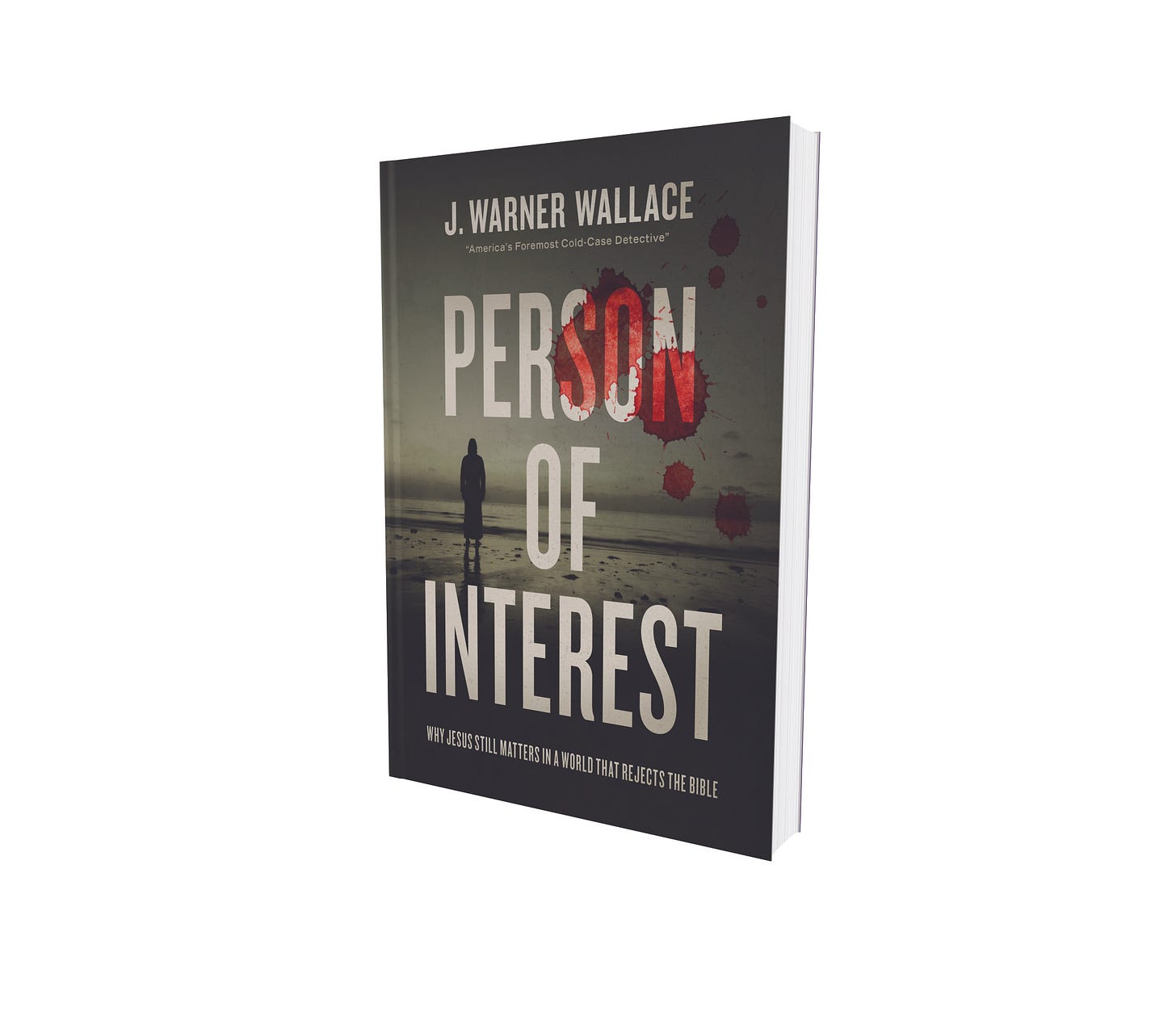In this Roundtable, our writers have each chosen an existential reason to believe in God to explain and defend, drawing from the categories discussed by Clifford Williams in his excellent book, Existential Reasons for Belief in God: A Defense of Desires and Emotions for Faith (IVP Academic, 2011). In part one, David Baggett explored the human desire for immortality and how the Christian worldview meets this need in a marvelous way. In part two, Paul Copan discussed the nearly universal experience of human guilt and the inability to escape from it apart from a gracious God who forgives. In this third and final part, Paul Gould examines the human need for a deep and expansive life, which, he argues, is best explained by being made for God and to thrive in his creation.
Paul M. Gould
In this month’s Roundtable question, we’ve been asked to explore existential reasons for belief in God. Clifford Williams distinguishes between two kinds of needs that are best met by believing in God: those that are self-directed and those that are other-directed.[1] In this Roundtable discussion, I want to focus on one of Williams’s self-directed needs: the need or desire for a larger life. Williams describes this longing as follows:
The craving for something different from what we now experience is also a desire for a more expansive life. We want to know more about the hopes and dreams of our acquaintances, the workings of long poems or large engines, the physics of the beginning of the universe, the sociology of subcultures. We want new experiences—of fascinating places, grand landscapes, magnificent works of art, beautiful prose, new people. . . . We want to have these experiences because we want to have certain emotions—awe for the grand landscapes, magnificent works of art and beautiful prose; appreciative understanding for the emotional life of our acquaintances; exhilaration at discovering something new about the beginning of the universe or the workings of culture; moral awe at observing goodness. Our desire for these emotions is a desire for a richer life, one that has a wide array of emotions we regard as significant.[2]
Let’s make a few observations about this long passage from Williams. First, a clarification. When Williams speaks of the desire for a “more expansive life” I think he means that we crave a kind of life that satisfies more than mere surface desires. For many today, we seem to rest content with the continual stream of sensual experience. We go from one bite-sized episode of pleasure or distraction to another, without much thought of eternal or deeper things. The satisfaction of these surface desires is important. But Williams’s claim, I think, is that if we pay attention, there is more to life than the satisfaction of surface desires: we have deep desires of the human heart, and those desires matter, and they matter more.
Second, we might ask, what are those deeper desires of the human heart? We could categorize them into two lists: the longing to have a certain kind of life and the longing to be a certain kind of person. When it comes to the kind of life we hope to live, I think words such as adventurous, beautiful, good, and dramatic come to mind. We were created, as J. P. Moreland describes in his book The Kingdom Triangle, to live a dramatic or great life.[3] When it comes to the kind of person we long to be, I think the following hits the target: we want to be the hero of our life story, we want to be weighty—a glorious person, we want to be multi-dimensional, an emotionally fulfilled person. That is the kind of “expansive life” we crave.
Our next question is what account of reality best explains this longing of the human heart for a larger life? For simplicity, let’s boil the options down to two: either the religious or non-religious account of reality. On the non-religious account of reality, there is no God. On the religious account, there is a God. On the non-religious account, there is no deep or metaphysical explanation for why we have this longing for a more expansive life. There is an explanation, however, and it is usually some version of the evolutionary explanation: we long for a larger life because it aids survival (and reproduction) in some way. On the religious account, especially on the Christian story, humans were created for more. This longing is built into the fabric of created reality itself: humans were created for God; humans were created, as bearers of the divine image, to live a certain kind of expansive life and to be a certain kind of expansive person (indeed, to become like God). Thus, at least one version of the religious account of reality better explains this deep longing of the human heart. We were created by God not just to survive, but to thrive.
Our final question is what account of reality best satisfies this longing of the human heart for a larger life? Here it will be no surprise that I claim Christianity best satisfies this deep longing of the human heart. Since we are only considering existential reasons for belief in God (I think we have good, rational reasons to think that God exists and that Christianity is the true story of the world, but set that aside for now), I’ll simply report that when we enter into the Christian story, as I’ve done, and find our identity in that story, we find a story alive and inviting and deeply satisfying. For in that story, we find Jesus—the pursuer of our souls—who came that we might find forgiveness of sins and meaningful and satisfying life. This is reason enough, even if there are many more reasons for believing in God.
Notes
[1] Clifford Williams, Existential Reasons for Belief in God: A Defense of Desires and Emotions for Faith (Downers Grove, IL: InterVarsity Press, 2011), 20.
[2] Ibid., 23.
[3] J. P. Moreland, The Kingdom Triangle (Grand Rapids, MI: Zondervan, 2007).
— Paul M. Gould is an Associate Professor of Philosophy of Religion and Director of the M.A. Philosophy of Religion program at Palm Beach Atlantic University. He is the author or editor of ten scholarly and popular-level books including Cultural Apologetics, Philosophy: A Christian Introduction and The Story of the Cosmos. He has been a visiting scholar at Trinity Evangelical Divinity School’s Henry Center, working on the intersection of science and faith, and is the founder and president of the Two Tasks Institute. You can find out more about Dr. Gould and his work at Paul Gould.com and the Two Tasks Institute. He is married to Ethel and has four children.
Image by Free-Photos from Pixabay
Person of Interest
Can the truth about Jesus be uncovered—even without a body or a crime scene? Join cold-case detective and bestselling author J. Warner Wallace as he investigates Jesus using an innovative and unique approach he employs to solve real missing person murder cases.
In Person of Interest, Wallace carefully sifts through the evidence from history alone, without relying on the New Testament. You'll understand like never before how Jesus, the most significant person in history, changed the world.
See our recent excerpt from Person of Interest here.
“A creative and eye-opening work. You’ll be captivated as Wallace takes you on a thrilling journey of discovery.”
—Lee Strobel, bestselling author of The Case for Christ
“Every so often a novel approach to Christian apologetics comes along. I am more than pleased to endorse Person of Interest. What a boost to the field of Christian evidences!”
— Gary Habermas, Distinguished Research Professor of Apologetics and Philosophy at Liberty University
“If you read this book, you will have to reckon with Jesus, not just as a historical person but as Lord and Savior. This is not your typical apologetics book!”
—Alisa Childers, author of Another Gospel
Find Person of Interest at Amazon, Barnes & Noble, and other major booksellers, or learn more at Person of Interest.
* This is a sponsored post
News
13 Good Historical Reasons For The Early Dating Of The Gospels
Did the Heretics Outnumber the Orthodox in Early Christianity?
‘The Chronicles of Narnia’ on Netflix: Everything We Know So Far
“Mere Christianity” at 80: Why does C.S. Lewis’s unlikely classic continue to hold such appeal?
Nearly 4 in 10 American adults live without spouse or partner as single population grows: Pew
Covid-19 vaccines and Jeffrey Dahmer’s nail clippings
Video: Is God a Moral Monster, Part 2
Video: Could it Ever be Rational to Believe in Miracles? // DEBATE: Tim McGrew & Zach Moore
Video: Resurrection Debate: Mike Licona vs. Dennis MacDonald (2021)
(*The views expressed in the articles and media linked to do not necessarily represent the views of the editors of The Worldview Bulletin.)
Book Deals and Resources
Look here for Faithlife’s free eBook of the Month.
Visit here to get the Logos Free Book of the Month. You can download the free version of Logos which will allow you to access the monthly free books. Logos 9 is a great investment, though, and has tons of tools that make Bible study easier and richer. New users can get 50% off of the Logos 9 Fundamentals package, which discounts it to $49.99.
Get a second free book of the month here.
See the Logos Monthly Sale for dozens of good deals, and the Pastor Appreciation Month sale.
Audiobook: The Abolition of Man and The Great Divorce by C. S. Lewis, $1.99
Audiobook: Out of the Silent Planet by C. S. Lewis, $2.99
Audiobook: Short Stories by C. S. Lewis, $1.99
Audiobook: The Narnian: The Life and Imagination of C. S. Lewis by Alan Jacobs, $3.99.
Audiobook: The Two Towers by J. R. R. Tolkien, $2.99
Stream the ESV Bible for free on ESV.org or the ESV Bible app on iOs and Android. Read by award-winning modern hymn writer Kristyn Getty.
Neo-Aristotelian Perspectives on Contemporary Science is available free as an open-access book (download the full book using the “Download” button on the right side of the screen, opposite the cover image).
Most volumes in the Christian Encounters biography series are on sale.
Bullies and Saints: An Honest Look at the Good and Evil of Christian History by John Dickson, $3.99
How to Read the Bible for All Its Worth, Fourth Edition, by Gordon Fee and Douglas Stuart, $3.99
Echoes of Eden: Reflections on Christianity, Literature, and the Arts by Jerram Barrs, $4.99
Art and the Christian Mind: The Life and Work of H. R. Rookmaaker by Laurel Gasque, $4.99
The World's Greatest Book: The Story of How the Bible Came to Be by Jerry A. Pattengale and Lawrence H. Schiffman, $2.99
Forensic Faith: A Homicide Detective Makes the Case for a More Reasonable, Evidential Christian Faith by J. Warner Wallace, FREE
On Guard for Students: A Thinker's Guide to the Christian Faith by William Lane Craig, $0.99
Loving God with Your Mind: Essays in Honor of J. P. Moreland ed. by Paul Gould and Richard Brian Davis, $2.99
A Master Class in Christian Worldview
Learn from world-class Christian apologists, scholars, and philosophers, and support our work of making these resources available, all for only $2.50 per month. There’s no obligation and you can easily cancel at any time. Be equipped, informed, and encouraged!






